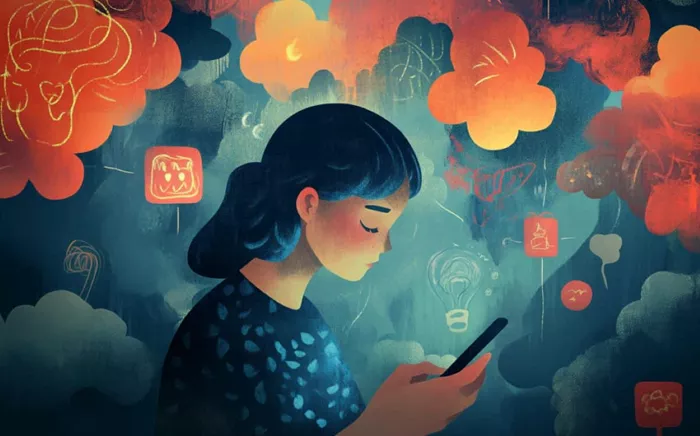New research suggests that smartphones, often linked to stress, could actually be used to improve mental health. A study published in Nature Medicine shows that a smartphone app based on Cognitive Behavioural Therapy (CBT) could help people with mild depression, also known as “subthreshold depression,” manage their symptoms.
An estimated 11% of people worldwide experience subthreshold depression, a form of mild depression that doesn’t meet the full criteria for major depression but still affects a person’s daily life and well-being.
Cognitive Behavioural Therapy (CBT), a popular and effective method for treating mental health issues, focuses on helping individuals understand and change unhealthy thoughts and behaviors. It’s often as effective as medication for many patients, but with a shortage of mental health professionals worldwide, many people cannot access traditional therapy.
The study tested whether a smartphone app, which offers CBT-based exercises, could provide a solution. The app helped users practice five key CBT skills: engaging in mood-boosting activities, addressing negative thoughts, improving problem-solving, communicating effectively, and ensuring good sleep hygiene.
Nearly 4,000 Japanese adults with subthreshold depression were divided into two groups. One group used the app, which offered various CBT-based skills. The other group did not use the app. Participants who used the app typically stopped after 6 to 10 weeks, once they had completed their lessons.
The results showed that users of the app experienced significant improvements in mental health, with lower levels of depression, anxiety, and insomnia. These benefits were still present six months later, when the study ended.
This study is significant because previous research on CBT-focused smartphone apps has produced mixed results.
Some studies suggest that short, phone-based interventions can help reduce symptoms of mental disorders, while others, such as an EU-funded experiment, found that such interventions didn’t improve well-being—possibly due to the focus on low-risk groups, like university students without a history of depression.
In this new study, certain CBT techniques proved more effective for specific conditions. For instance, the mood-boosting and sleep-improvement strategies were particularly helpful in reducing anxiety and promoting better sleep. However, the part of the app that addressed negative thoughts didn’t seem to work as well.
In conclusion, smartphones, often blamed for mental health issues, could be part of the solution, offering accessible and effective tools for managing mild depression and anxiety.
Related topics:
- New Mpox Strain Detected In Several European Countries: What You Need To Know
- Staffing Cuts Threaten Future Of 9/11 Health Program
- What Happens To Your Body During A Marathon? 7 Key Effects You Should Know


